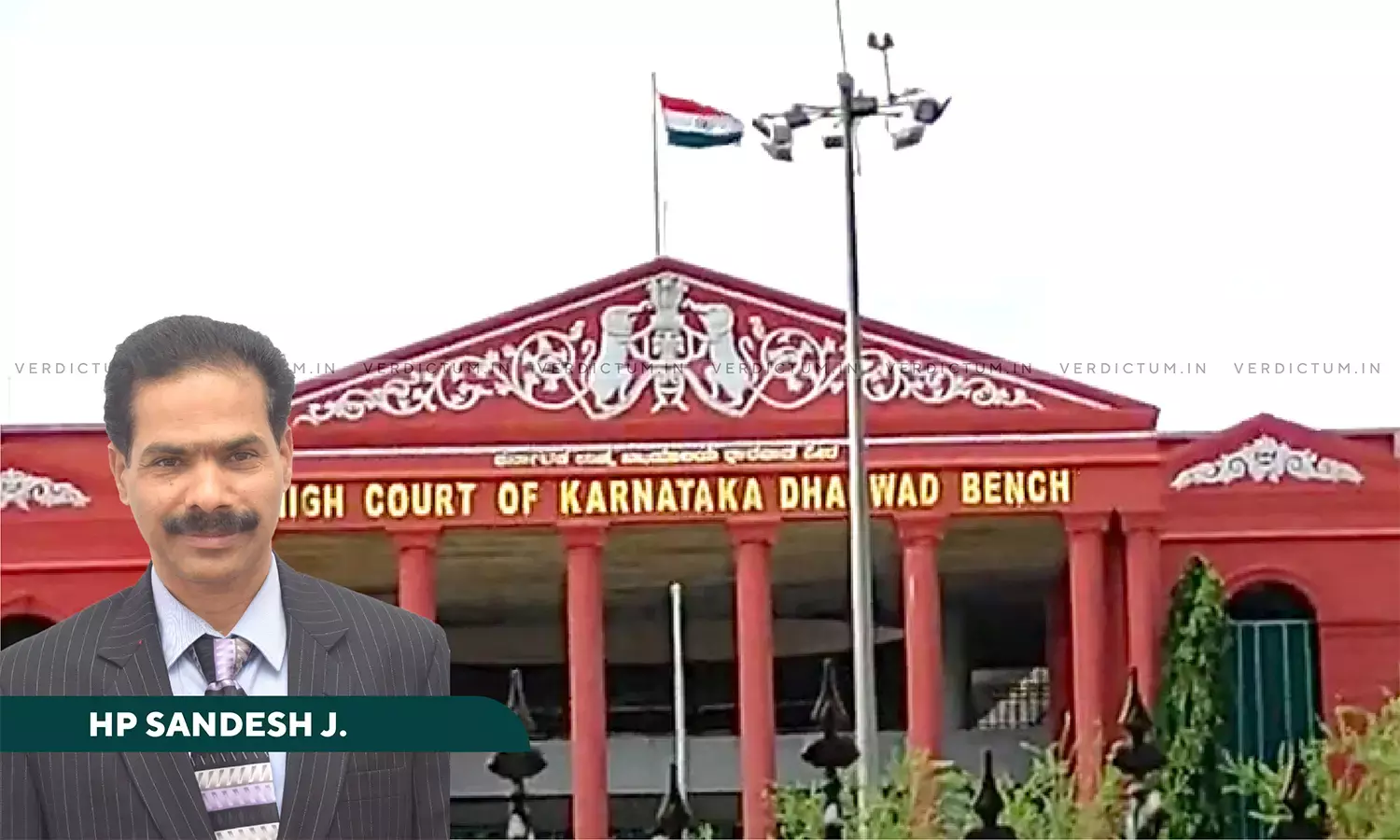Wrong Done Within Local Jurisdiction Of Court: Karnataka HC Directs Trial Court To Proceed With Defamatory Suit Filed By Manna Dey’s Daughter Relating to Bengali Book
The Karnataka High Court held that the Trial Court in Bengaluru will have jurisdiction to proceed with the suit filed by late singer Manna Dey’s daughter alleging defamatory content published in a Bengali book. The Court noted that wrong was done within the local jurisdiction of the Bengaluru Court.
The High Court observed that an erroneous approach was adopted by the Trial Court in coming to the conclusion that mere selling of books in Bengaluru did not create any jurisdiction.
The miscellaneous first appeal was filed challenging the order concluding that the Trial Court had no territorial jurisdiction to try the suit and returning the plaint to present the same before the competent Court of law within 60 days.
The Single-Judge Bench of Justice H.P. Sandesh said, “It is also very clear that books are sold in Bengaluru and circulated in Bengaluru wherein Bengali people also residing.”
Advocate Manu Prabhakar Kulkarni represented the Appellant while Advocate Suman K.S. represented the Respondent.
The suit, in this case, was filed against the defendants for the relief of permanent injunction restraining the defendants from reprinting, circulating or modifying and publishing in any manner whatsoever the defamatory, false and man-aligning content contained in the introductory page and 7th chapter of the book about late Manna Dey and published in the book Tarader Sesh Chitthi (Star’s last letter) and also sought permanent injunction against defendant No.6 to air or communicate in also against the defendants to jointly and severally pay a sum of Rs.1,10,00,000 to the plaintiffs as compensation.
The Trial Court framed several Issues, Additional Issues and considered Issue No.5 as preliminary issue which was with regard to the territorial jurisdiction to try the suit.The Trial Court noted that the publication contents had been published in Bengali language in ‘Anand Bazaar Patrika’ and in ‘Tarader Shesh Chitthi’ book in Kolkata, West Bengal.
The Trial Court also took note of Section 19 of CPC and extracting the same made an observation that just because the said books had been sold in Bengaluru did not mean that the Trial Court had got the territorial jurisdiction. The main contention of the appellants was that though the books were published in Bengali language in Kolkata but the same were sold in Bengaluru. It was contended that once it is admitted that the defamatory book was circulated within the territorial jurisdiction of the Trial Court, language was immaterial since in Bengaluru also Bengalis reside and read the said book.
Referring to Sections 19 and 20 of CPC and the proviso, the Bench opined that it is very clear in Section 19 that where a suit is filed for compensation for wrong done to the person and if it is done within the local limits of the jurisdiction of one Court and the defendant resides, or carries on business, or personally works for gain, within the local limits of the jurisdiction of another Court, it is an option of the plaintiff to institute a suit either of the said Courts.
Noting the contention of the appellants that immediately after selling those books, the people who are residing in Bengaluru contacted the appellants and brought to notice of defamatory statements made in the said books and discussed the issue, the Bench said, “Hence, it is clear that wrong was done within the local jurisdiction of the Trial Court. Section 19 is very clear in this regard and the suit is filed for the relief of wrong done to persons.”
“I have already pointed out that in the suit, it is specifically stated by the appellants that books are sold in Bengaluru, hence, the cause of action arose in Bengaluru also as pleaded”, it added.
Noting that this was a case of publication of books and selling of books in Bengaluru, the Bench held, “...this Court is of the opinion that the Trial Court committed an error coming to a conclusion that merely because book is sold in Bengaluru, jurisdiction does not arise within this Court and the same is an erroneous approach when the wrong was done in Bengaluru by selling the books and by circulating the same in Bengaluru and restricted meaning of Section 19 of CPC with regard to the jurisdiction to file the suit and fails to take note of the fact that wrong was done in Bengaluru and also made an error in making an observation that book was published in Bengali language.”
The Bench also found force in the submission of the appellant that the High Court can interfere with the findings of the Trial Court since the Trial Court proceeded in an erroneous approach in coming to the conclusion that it is only in a Bengali language and mere selling of books in Bengaluru does not create any jurisdiction.
Thus, allowing the first appeal, the Bench directed the Trial Court to consider the matter on merits.
Cause Title: Mrs. Shumita Deb v. Gautam Bhattacharya [Case No. MFA No.6128 OF 2024 (CPC)]
Appearance:
Appellants: Advocates Manu Prabhakar Kulkarni & Dharmendra Chatur
Respondents: Advocates Suman K.S., Umesha R., B.V. Nidhishree




